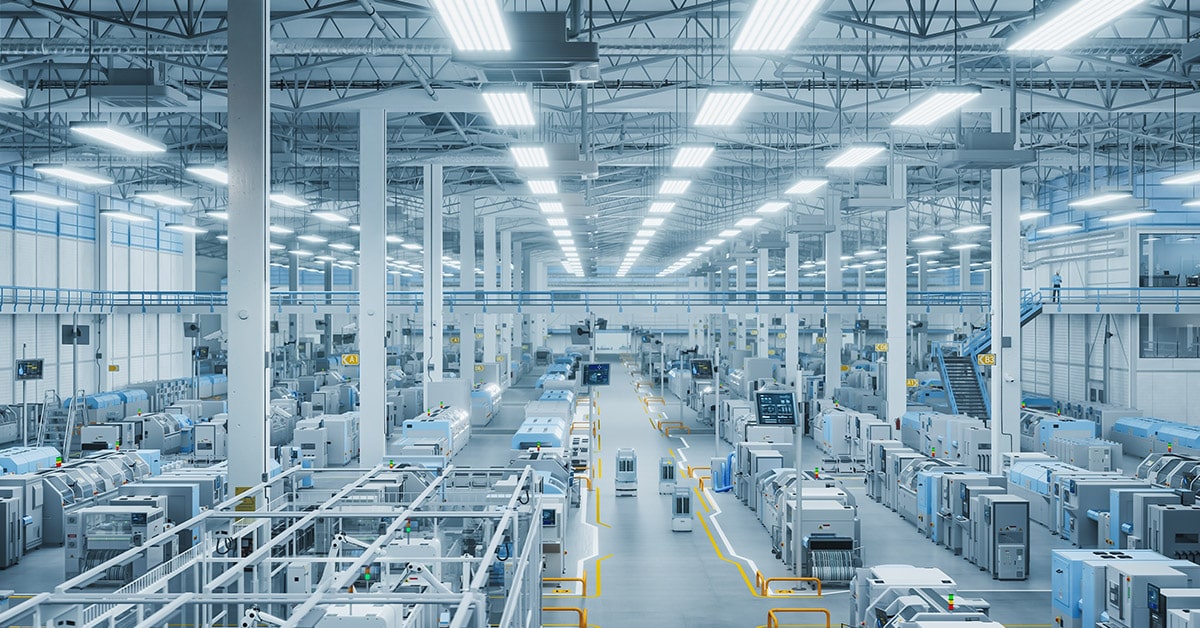Physical Address
304 North Cardinal St.
Dorchester Center, MA 02124
Physical Address
304 North Cardinal St.
Dorchester Center, MA 02124

Sustainability reshapes modern manufacturing practices
In recent years, the manufacturing industry has undergone a significant transformation as businesses face rising pressure to adopt environmentally responsible practices. Driven by climate change concerns, stricter regulations, and shifting customer expectations, manufacturers are rethinking traditional production methods. This widespread move toward sustainability is not only reshaping the way factories operate but also influencing supply chains, workforce dynamics, and long-term growth strategies. The shift reflects a broader recognition that eco-conscious operations are no longer optional—they are a necessity for survival and competitiveness in today’s global market.
The push toward sustainability is encouraging manufacturers to adopt green technologies as a means of driving growth. From renewable energy sources such as solar panels and wind power to energy-efficient machinery, businesses are aligning themselves with eco-smart solutions. These investments reduce operational costs over time by minimizing wasted energy and lowering resource consumption, giving companies a financial advantage alongside an environmental benefit.
Technological integration is also opening doors for automation and digital monitoring systems that track energy use in real-time. This data-driven approach enables factories to adjust processes, optimize performance, and cut unnecessary emissions. By blending operational efficiency with sustainability goals, manufacturers demonstrate that technology is a powerful ally for long-term resilience.
Companies that embrace green technology are also finding wider acceptance among customers and investors. Consumers are increasingly drawn to products made with reduced environmental impact, while investors prioritize companies that showcase environmental, social, and governance (ESG) responsibility. In this way, sustainability technologies are becoming central to both brand credibility and investor confidence.
Ultimately, green tech adoption is not just about environmental stewardship—it is about positioning manufacturers for future competitiveness. Global supply chains are demanding cleaner operations, and companies that act early will have an advantage over those reluctant to change. Manufacturers that recognize sustainability as a business growth driver stand to gain a stronger presence in emerging markets.
Sustainable production is reshaping factory operations from the ground up. Waste reduction strategies, such as recycling scrap materials and reusing water, are increasingly integrated into everyday workflows. By minimizing resource waste, factories reduce costs and lessen their environmental impact at the same time. This shift represents a departure from linear “take-make-dispose” processes toward more circular production models.
Energy efficiency has become a cornerstone of modern manufacturing. Factories are installing smart energy management systems that precisely control heating, cooling, and machine usage to decrease power consumption. Those small adjustments, when applied across large-scale operations, add up to measurable reductions in greenhouse gas emissions. Moreover, many manufacturers are now partnering with renewable energy providers to power operations sustainably.
Factories are also reconsidering the materials they use. The demand for sustainable raw inputs—such as biodegradable plastics, responsibly sourced metals, and recycled materials—is growing rapidly. This change not only reduces dependency on finite resources but also lowers the environmental footprint of finished products. By embedding sustainable choices into material sourcing, manufacturers are creating more responsible supply networks.
Additionally, employee involvement has become a critical aspect of sustainable production. Training programs and workplace initiatives encourage workers to adopt eco-friendly habits within the factory and beyond. Empowering the workforce with sustainable knowledge creates cultural change that extends far deeper than process adjustments, making sustainability a core element of operational identity.
Innovation is the engine propelling the future of eco-friendly manufacturing. Research and development efforts are focused on discovering new ways to reduce emissions, conserve energy, and utilize alternative materials. For example, advances in 3D printing are reducing material waste while enabling more flexible, localized production. Similarly, biotechnology is being applied to create bio-based alternatives to petroleum-derived materials.
Digital innovation also plays a crucial role. Artificial intelligence and Internet of Things (IoT) devices are increasingly applied to predict equipment performance, improve energy use, and minimize downtime. By incorporating predictive analytics, manufacturers can extend machine lifespans and prevent unnecessary resource waste, contributing to a more sustainable production cycle overall.
Collaboration across industries is another key driver of sustainable innovation. Manufacturers are forming partnerships with environmental organizations, academic researchers, and technology startups to accelerate the shift toward cleaner production methods. These alliances strengthen knowledge-sharing and provide pathways to scale sustainable solutions more quickly.
Looking ahead, innovation will continue to shape the balance between productivity and environmental responsibility. As regulations evolve and consumer awareness grows, the companies that invest in inventive solutions today will be the leaders of tomorrow’s sustainable economy. By making sustainability a cornerstone of innovation, manufacturing is proving it can thrive while protecting the planet.
The manufacturing industry’s pivot toward sustainable production methods represents a major turning point for global industry. From green technologies to redefined factory operations and groundbreaking innovations, manufacturers are actively reimagining how goods are made in ways that reduce their environmental footprint. These changes do not just benefit the planet—they strengthen competitiveness, appeal to conscious consumers, and open new paths for growth. As sustainability moves from the margins to the mainstream, it is becoming clear that the future of manufacturing is green, adaptive, and resilient.